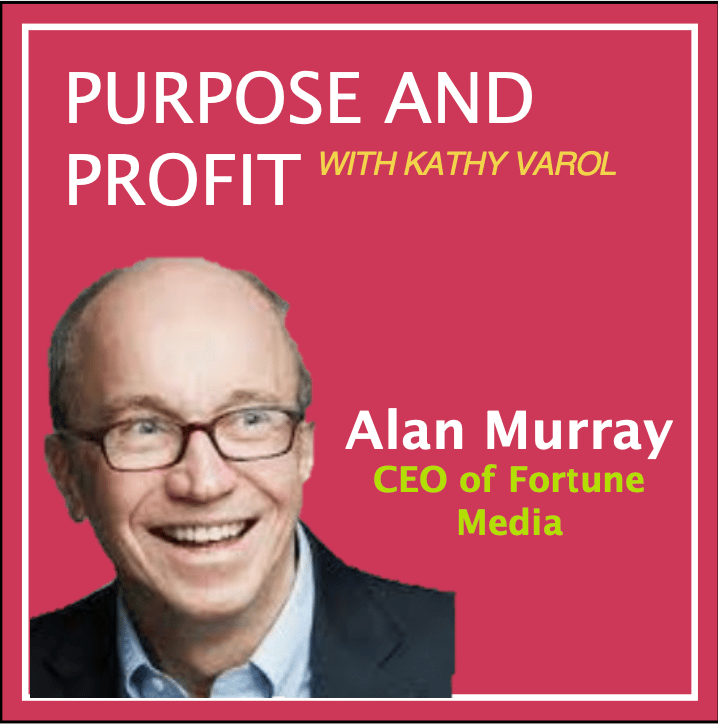Show Notes:
In this episode, I sit down to chat with Alan Murray about his latest book, Tomorrow’s Capitalist: My Search for the Soul of Business, which reveals, according to the book description, how corporate CEOs—the ultimate pragmatists—realized that they could lose their “operating license” unless they tackle the fundamental issues of our time: climate, diversity and inclusion, and inequality and workforce opportunity. Responding to their employees and customers who are demanding corporate change, they have taken the lead in establishing the bold new principles of stakeholder capitalism, ensuring that for the first time in more than a half a century it is not just shareholders who have a say in how corporations are run.
Alan Murray is CEO of Fortune Media, and writer of the popular daily newsletter, the Fortune CEO Daily. A career journalist, prior to joining Fortune in 2015, Murray was President of Pew Research Center, and had a long career at the Wall Street Journal serving as Deputy Managing Editor, Executive Editor Online, Washington Bureau Chief, and author of the Political Capital and Business columns. Murry also served as Washington bureau chief for CNBC, and as cohost of the nightly show Capital Report.
In this episode we discuss:
- The impact of the Great Resignation on leadership
- The power of shareholder activism
- The surprising acceleration caused by the global pandemic
- The shift to companies publicly standing up for their values
Key Takeaways:
- As Alan mentioned, companies have gone from physical assets making up 80% of the market value for S&P 500 companies in 1975 to intangible assets making up 80% of the market value today (HBR). This makes sense. Taking a step back, the industrial revolution brought with it the assembly line, the industrial worker, and employees as “resources”. Output was linear and easy to measure. Those linear, repeatable tasks are now often done by technology. The value of companies in the knowledge age comes from their intangible assets: Their employees, and their employees showing up as humans performing complicated—nonlinear—tasks like creativity, innovation, and empathy. This is a dramatic shift. From personal experience, I can honestly say that early in my career I was probably only 10% human at work and 90% robot, focused on efficiency since that was what was rewarded and expected of me. Thankfully we’re entering a new age, and company cultures are catching on to what environments foster the best in their people, and an understanding that having employees bring their whole self to work is what will make their company great.
- Change takes time. While the pandemic provided one silver lining, which is the great acceleration of the stakeholder capitalism movement and bringing humanity into the core of business, figuring out how to do this right, getting the right metrics and supporting structures in place, will take time. Progress is always a continually evolving journey of learning what works, what doesn’t, and how to do better.
- The amazing opportunity, and invitation, businesses have been given to identify their purpose, define their values, bring meaning into their business strategy, and then find ways to use their voice, their power, and their business model to create a world that brings their purpose and values to life.
References:
- Connect with Alan on LinkedIn and follow him on Twitter
- Tomorrow’s Capitalist: My Search for the Soul of Business by Alan Murray
- World Economic Forum 2008 speech by Bill Gates, Davos, Switzerland
- 2018 Shared Value Leadership Summit video of Alan in conversation with Hillary Clinton
- Proposed SEC amendment, “The Enhancement and Standardization of Climate-Related Disclosures for Investors” and accompanying press release
- “Exxon loses board seats to activist hedge fund in landmark climate vote”, Jennifer Hiller and Svea Herbst-Bayliss, Reuters, May 26, 2021
- BlackRock CEO Larry Fink’s 2022 letter to CEOs, “The Power of Capitalism”
- The FORTUNE CEO Initiative

